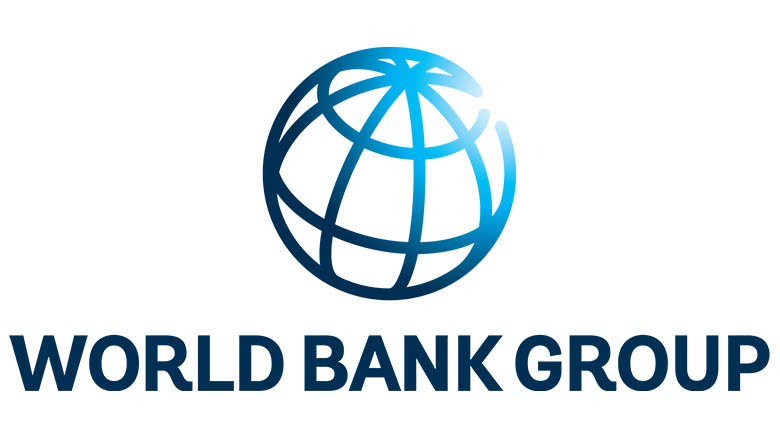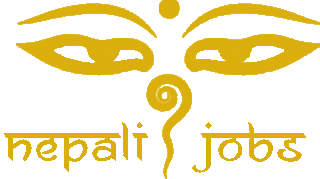JOB OPPORTUNITY

World Bank Group and COVID-19 (Coronavirus)
Position: Senior Health Specialist
Job #: req11205
Organization: World Bank
Sector: Health/Nutrition/Population
Grade: GG
Term Duration: 4 years 0 months
Recruitment Type: Local Recruitment
Location: Kathmandu, Nepal
Required Language(s): English, Nepali
Preferred Language(s):
Closing Date: 3/25/2021 (MM/DD/YYYY) at 11:59pm UTC
Description
Do you want to build a career that is truly worthwhile? Working at the World Bank Group provides a unique opportunity for you to help our clients solve their greatest development challenges. The World Bank Group is one of the largest sources of funding and knowledge for developing countries; a unique global partnership of five institutions dedicated to ending extreme poverty, increasing shared prosperity and promoting sustainable development. With 189 member countries and more than 120 offices worldwide, we work with public and private sector partners, investing in groundbreaking projects and using data, research, and technology to develop solutions to the most urgent global challenges. For more information, visit www.worldbank.org
GLOBAL: Health, Nutrition and Population (HNP) Global Practice Context
The central contribution of the HNP Global Practice to the World Bank’s twin goals is to enable the achievement of Universal Health Coverage (UHC), in which all people are effectively covered by essential health services, and nobody suffers undue financial hardship because of illnesses. The HNP Global Practice includes staff members in Washington, DC and many country offices. The HNP Global Practice works with and across multiple sectors, in recognition of the fact that HNP outcomes often depend on actions that lie outside the HNP sector. The HNP Global Practice supports country and regional efforts to: (i) improve health outcomes, especially for the poor and most vulnerable; (ii) expand access to high-quality HNP services, interventions and technologies that give the most value for money; (iii) strengthen health systems for results; (iv) establish and improve health financing mechanisms that promote efficiency, equity and sustainability of investments; (v) strengthen heath-relevant institutions within and outside the health sector; (vi) harness multisectoral policies and investments for better health outcomes; and (vii) develop and learn from rigorous impact evaluations.
The HNP Global Practice works with and across multiple sectors, in recognition of the fact that HNP outcomes often depend on actions that lie outside the HNP sector. Accordingly, a capacity to work across GP boundaries, forge coalitions and influence multi-practice solutions is essential for achieving the major objectives of improving HNP outcomes.
Regional context: SOUTH ASIA
The South Asia Region (SAR) has the largest concentration of poor people of any region, home to 1.5 billion people with over 1 billion living under $2/day. It has had high growth of 6 percent average annual rate in the last 20 years, despite its poverty, conflict, and instability. The WBG is and will continue to be a key development partner in South Asia. The South Asia Region (SAR) strategy is based on three pillars which are promoting growth, enhancing social inclusion and strengthening climate/environment.
During the last two decades, Nepal has achieved noteworthy improvements in health outcomes but critical challenges remain in achieving universal health coverage (UHC). The improvements have primarily been in the areas of reproductive, maternal, neonatal, and children’s health. However, major gaps remain in basic service delivery and health financing. For example, basic health indicators are still at low levels: maternal mortality is 239 per 100,000 live births, under-five mortality is 39 per 1,000 live births, stunting is 36 percent, anemia in women aged 15 to 49 is 41 percent, anemia in children aged 6 to 59 months is 53 percent, and only 69 percent of the potential demand for family planning is met. Health outcomes are also inequitable across wealth quintiles, geographic regions, and ethnic groups. The quality of health service delivery is compromised, particularly in remote areas. Limited public financing, systemic inefficiencies, and high out-of-pocket (OOP) health expenditures hinder access to health services and place families at risk of impoverishment due to health shocks. The most significant mechanism in the country to protect against high medical costs – which can be a barrier to access or reason for impoverishment is the free delivery of basic health services for all. However, services are not always available, with dire consequences on the poor and vulnerable.
In 2016, Nepal established a social health insurance scheme as a means of addressing the abovementioned challenges. However, such commitments to improve health care access and outcomes come at a time in which improved yet unstable economic performance – and an ongoing transition to a federal system – threaten the government’s ability to finance and further expand the delivery of health care services. Some factors that are of concern include a relatively low tax base, rising budget deficits, and declining levels of international development assistance, the latter being an increasingly unpredictable source of funds. With the assistance of international donors, government officials are considering several reforms that are intended to increase the financial viability and effectiveness of the public health care system. The strategies include employing better mechanisms to target the poor, delivering an affordable benefit package that reflects the disease burden, and incentivizing quality.
The HNP portfolio in Nepal includes two projects under implementation: the Nepal Health Sector Management Reform Program-for-Results which is a results-based approach to strengthening the fiduciary and information management systems of the Federal Ministry of Health and Population and the COVID-19 Response Project. In addition, the HNP team provides technical input into projects mapped to other Global Practices, covering topics such as nutrition-sensitive interventions and disaster preparedness. There is also a project being designed which will address local service delivery of human development programs. Finally, there are a number of analytical products underway, including a large health financing support initiative, capacity assessment of addressing malnutrition and early childhood development, assessment of financing for pandemic/epidemic preparedness and response and other activities in the pipeline.
The HNP team for Nepal includes staff in the Country Office in Kathmandu, other South Asian countries, and Washington DC. To strengthen the team, the WBG is recruiting a GG level Senior Health Specialist based in Katmandu. The Senior Health Specialist will support the World Bank’s HNP portfolio in Nepal and the broader Human Development (HD) agenda, including the ongoing policy dialogue with Governments and partners, preparation of analytical products, and the preparation and implementation of operations in the sector.
Duties & Responsibilities:
The World Bank is seeking to place in the World Bank Kathmandu office a Senior Health Specialist with public health, nutrition, or health economics qualifications and experience as detailed below, to support the health engagement in Nepal. The staff will closely work with the Kathmandu based HNP and the broader Human Development team engaged in the Nepal program. S/he will report to the Practice Manager for Health, Nutrition and Population Global Practice responsible for the South Asia HNP portfolio.
The Senior Health Specialist will have the following principal duties and accountabilities:
- Manage on a day-to-day basis the HNP portfolio and policy dialogue with the government and development partners in Nepal. Coordinate missions and provide implementation support to the ongoing projects in the health sector and oversee the work of consultants and technical specialists.
- Promote the integration of health sector priority themes into the Bank’s financing and analytical products, as well as country engagement strategies.
- Provide technical resources, learning and guidance and carry out analytical and operational tasks in key health areas, including through identification of both policy and programmatic barriers and opportunities.
- Coordinate closely with Human Development colleagues, staff from other GPs and partners to support the government’s health and human development agenda at the country level.
- Support the government and related stakeholders with hands-on technical and operational assistance on the implementation of all Bank-financed activities.
- Conduct periodic site visits to supervise implementation of ongoing projects and assist with the preparation of new projects.
- Represent the World Bank in Government and donor partner planning and coordination meetings as well as in working groups for the HNP sector.
- Develop, write and disseminate case studies and papers on lessons learned with the governments, Bank staff, and international partners, and provide regular updates on health sector development and relevant social economic context.
- Contribute to policy dialogue and operational tasks in other sectors that have implication on HNP outcomes.
- Participate in and support training and workshops as needed.
- Contribute to operational and strategic discussions in the country office and in the Country Management Unit, with the Government and Development Partners about overall development challenges in the country, the HNP sector role in them and the World Bank Group overall engagement.
- Provide selective support to other country or regional programs in the region based on need and strengths of the successful candidate.
Selection Criteria
- At least a master’s degree or equivalent in a relevant discipline but with health focus (health and nutrition, public health, health economics, public policy, social sciences). A PhD would be an advantage.
- Minimum of 8 years as senior specialist or in senior program management positions in one or more of the following areas: public health program management, service delivery, health systems development, health economics, and/or operations research in health. Experience in two or more of these areas is advantageous.
- Experience working closely with government counterparts in the health sector in Nepal.
- Demonstrated evidence of technical excellence and operational expertise in the health sector/health systems strengthening;
- Familiarity with donor-financed health programs and with the international aid architecture will be an advantage;
- Familiarity with analytical tools and ability to translate theoretical concepts into practical approaches for operational work.
- Demonstrated in-depth knowledge and understanding of project management concepts, as they relate to the implementation of complex, multi-functional projects in varied geographical and economic conditions.
- Superior client orientation, interpersonal and diplomatic skills, ability to support dialogue with high level government officials.
- A track record of teamwork and ability to produce high-quality results and outputs under pressure with minimal supervision.
- Demonstrated ability to function within and across diverse teams in operational and analytical work;
- Strong communication and presentation skills in English and Nepali.
The WBG Core Competencies for all staff: https://bit.ly/2kbIA7O.
Poverty has no borders, neither does excellence. We succeed because of our differences and we continuously search for qualified individuals with diverse backgrounds from around the globe.

